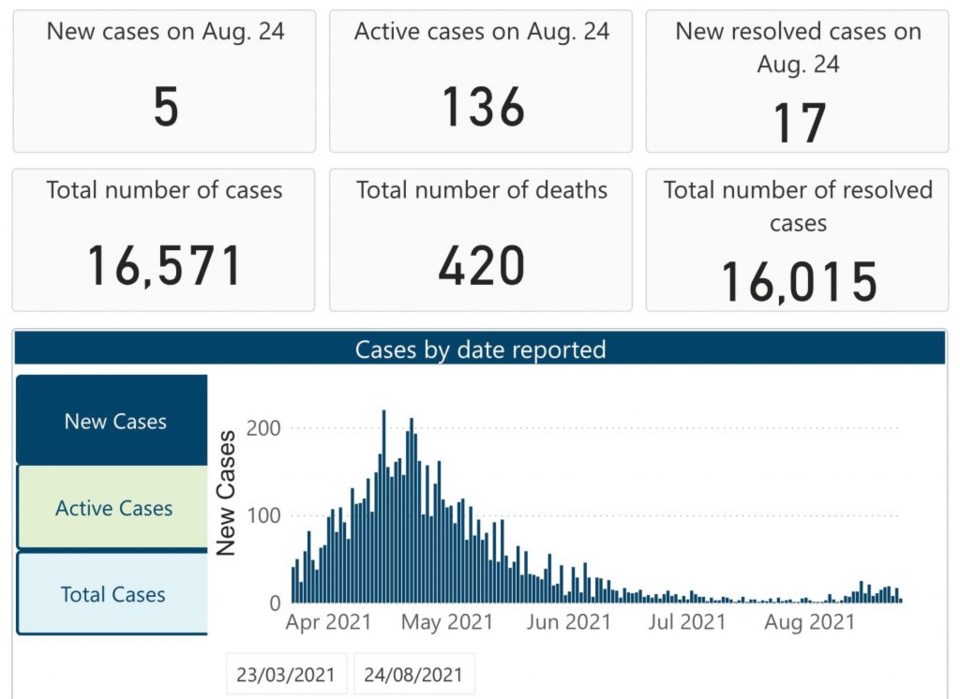
Those who are not vaccinated, says Niagara’s acting medical officer of health Dr. Mustafa Hirji, will most certainly contract COVID-19 this fall.
With the increasing number of Delta variant infections, he says, “I guarantee” those who are not vaccinated will become infected. “It’s basically a certainty. If you don’t get vaccinated, you will get COVID-19.”
Provincial cases are on the rise, and Niagara, while the increase hasn’t been as rapid, is also seeing more cases, says Hirji, adding it’s inevitable that it will get worse.
A couple of weeks ago, there was nobody hospitalized in the region due to the infection, but that too has changed, he says.
Of those who are sick, the large majority are unvaccinated, and a small number have had only one dose.
The high risk of infection among those unvaccinated points to the importance of workplace policies, at all levels of government and for every employer, he says.
“People who are unvaccinated will get sick, and that leads to destruction of the workplace. There needs to be policies in place to deal with that.”
While there are aspects of mandatory vaccinations that are outside of his expertise, such as labour laws and unions, his recommendation to Niagara regional and municipal governments, he says, will be to have policies in place, and if they choose to require vaccinations, how to handle employees who choose not be be vaccinated.
“If you do nothing, there will be an impact of illness,” he says.
There is also a danger of another lockdown, as more people become sick, especially if the health care system becomes overwhelmed with COVID patients and other medical procedures have to be cancelled.
“Obviously the best way to prevent that is to have more people vaccinated,” he says.
Last Thursday there were 15 new cases in Niagara, and the number continued to rise, to 18 on Friday and 19 Saturday. After a drop to eight on Sunday, they were up again to 23 Monday, with 148 active cases, including four in Niagara-on-the-Lake.
Of those cases, says Hirji, “96.5 look like the Delta variant.”
Beginning this week, Public Health opened drop-in clinics in some Niagara high schools, hoping to attract students born in 2009 and earlier vaccinated with at least a first dose before school starts, says Hirji.
He adds he’d like to see parents and even families vaccinated at the school clinics. “That would be a great win for us.”
Most parents want to see their children stay in schools, and schools remain open, he says, “and the best way to do that is to make sure almost everybody is vaccinated.”
He says the age group of 40 to 49, most likely to have children over 12 and eligible to be vaccinated, are 77 per cent vaccinated with their first dose, and 69 per cent with their second.
Yet 12 to 19-year-olds are at 64 per cent for first and only 50 per cent fully vaccinated.
For that reason, he says, it’s important for parents to understand vaccinations are safe, and the region is using social media to get that message across.
He blames the rising number of cases on the province for rushing reopening, which has led to more social interaction.
Rather than another lockdown, he’d like to see those who are unvaccinated have more limited access to the amenities that are open.